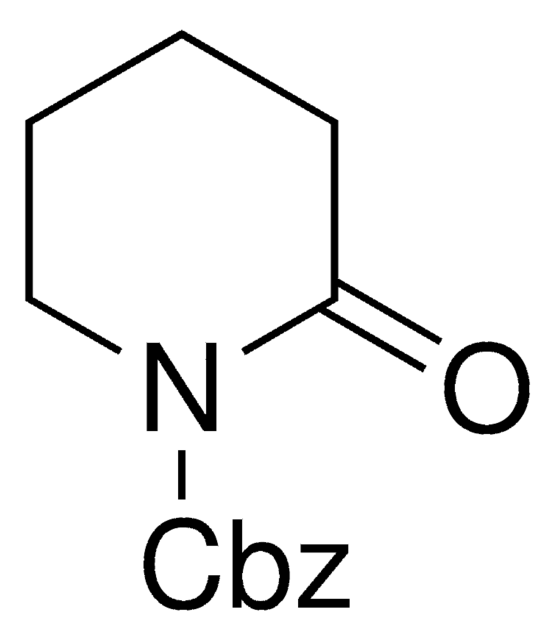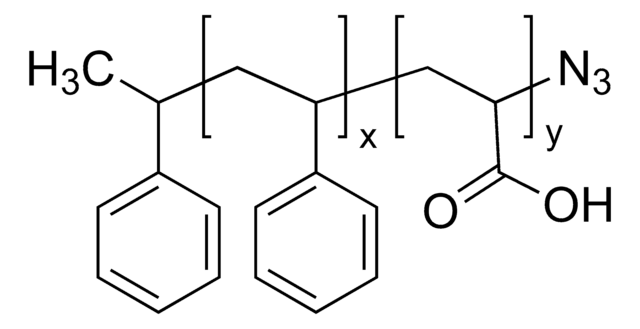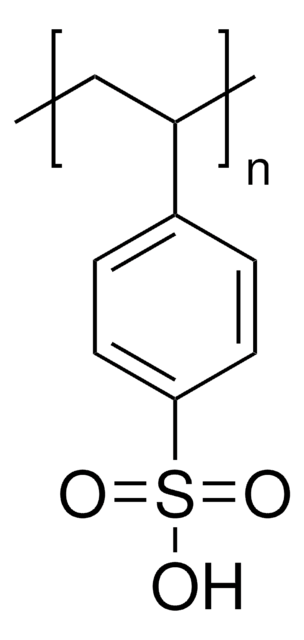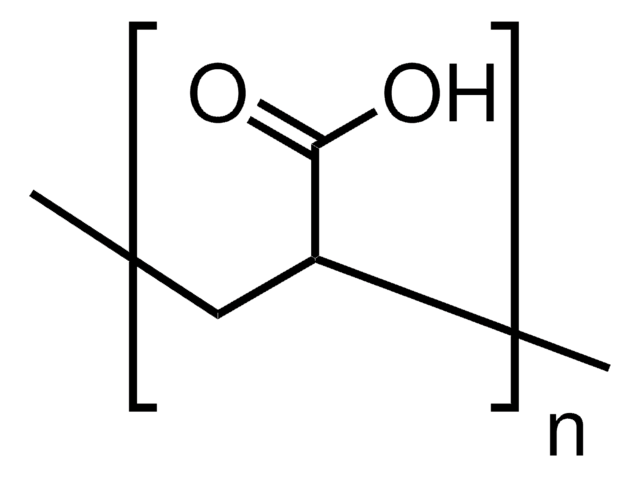747009
Poly(styrene)-block-poly(acrylic acid)
PS:PAA 30,000:2,000, PDI ≤1.1
Synonym(e):
PS-PAA, PS-PAA amphiphilic diblock copolymer
About This Item
Empfohlene Produkte
Form
powder
Mol-Gew.
Mn 1,000-2,000 (poly(acrylic acid))
Mn 27,000-31,000 (polystyrene)
Mn 28,000-33,000 (total)
PDI
≤1.1
Verwandte Kategorien
Anwendung
Rechtliche Hinweise
Signalwort
Warning
H-Sätze
Gefahreneinstufungen
Eye Irrit. 2 - Skin Irrit. 2 - STOT SE 3
Zielorgane
Respiratory system
Lagerklassenschlüssel
11 - Combustible Solids
WGK
WGK 3
Flammpunkt (°F)
Not applicable
Flammpunkt (°C)
Not applicable
Hier finden Sie alle aktuellen Versionen:
Analysenzertifikate (COA)
Die passende Version wird nicht angezeigt?
Wenn Sie eine bestimmte Version benötigen, können Sie anhand der Lot- oder Chargennummer nach einem spezifischen Zertifikat suchen.
Besitzen Sie dieses Produkt bereits?
In der Dokumentenbibliothek finden Sie die Dokumentation zu den Produkten, die Sie kürzlich erworben haben.
Artikel
Reversible addition–fragmentation chain transfer (RAFT) polymerization is rapidly moving to the forefront in construction of drug and gene delivery vehicles.
The development of drugs that target specific locations within the human body remains one of the greatest challenges in biomedicine today.
Over the past two decades, the rapid advance of controlled living polymerization (CLP) techniques.
Wide range of functional polymers for biomedical applications have been synthesized and structurally characterized. Several classes of polymers including biodegradable polymers, hydrophilic & amphiphilic polymers, and stimuli responsive polymers have been prepared using controlled and directed functionalization via "living" polymerization such as RAFT, ionic and ring opening polymerization. Selected polymers have been studied for their structure-properties relationship. "
Unser Team von Wissenschaftlern verfügt über Erfahrung in allen Forschungsbereichen einschließlich Life Science, Materialwissenschaften, chemischer Synthese, Chromatographie, Analytik und vielen mehr..
Setzen Sie sich mit dem technischen Dienst in Verbindung.








